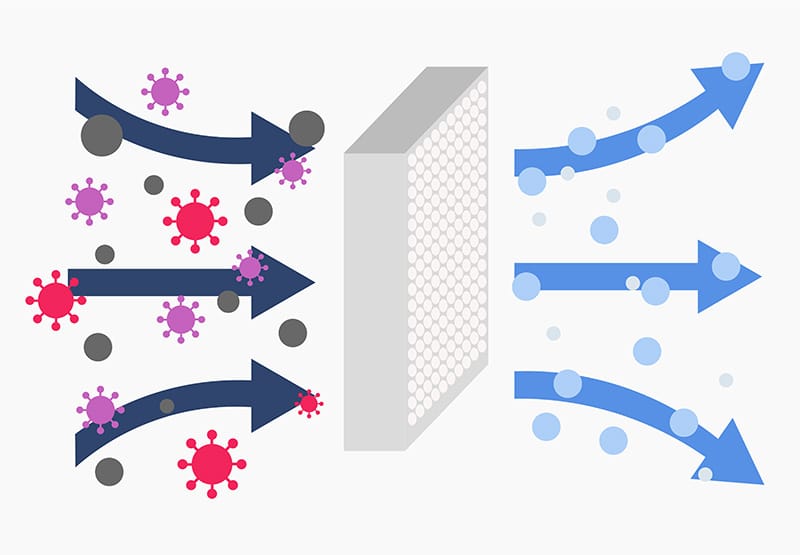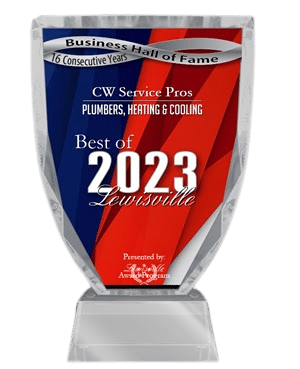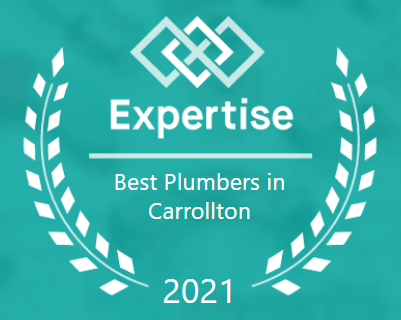Most people spend a significant amount of time indoors. And over the last couple of years, our indoor time has been higher. That has led many people to become more concerned with indoor air quality. And while you can’t individually control outdoor air quality, you do have the ability to control what the air is like in your home. An air purifier can be an effective part of improving your home air quality.
If you’re wondering, “Do I need an air purifier?”, we’re happy to help you decide! And we can offer recommendations for effective air purification systems.
What Are the Benefits of Air Purifiers?

The air you breathe booth indoors and outside is full of microscopic particles. These particles are too small to see, but they’re big enough to affect your well-being. An air purifier is the most effective and efficient way to clean the air in your home and improve your indoor air quality.
It may seem that the air you breathe indoors is cleaner than the air outside. In fact, according to the EPA, the indoor concentrations of some air pollutants are up to five times higher indoors than outdoors. This means that the air inside your home isn’t necessarily any cleaner than the air outside. If you’re concerned about outdoor pollution and air quality, it makes sense to be just as concerned about air quality in your home.
Allergy and Asthma
Air purifiers can benefit everyone, but for some people, clean air is even more important for good health. If you have allergies or asthma, indoor air is full of harmful particles that can trigger symptoms:
- Pet dander
- Dust and dust mites
- Pollens
- Mold
- Tobacco smoke
These can trigger allergy or asthma symptoms that range from unpleasant to potentially dangerous.
For people with allergies, this means symptoms such as congestion, sneezing, and headaches. For people with asthma, symptoms can include wheezing, coughing, and difficulty breathing. For people with very severe asthma or allergies, exposure can trigger symptoms that may require emergency treatment.
Chemical Sensitivity
From household cleaners to pesticides and herbicides, indoor air can be full of chemicals. Many of them are volatile organic compounds (VOCs). VOCs are widely used in manufacturing. They’re present in everything from household cleaners to paints and varnishes and building materials. Indoor levels of these compounds are up to 10 times higher than they are outdoors.
VOCs aren’t immediately dangerous to most people, but they can pose serious problems if you have chemical sensitivity. High levels of volatile organic compounds can cause many different symptoms, like:
- Eye, nose, and throat irritation
- Headaches
- Nausea
- Fatigue
- Dizziness
- Skin reactions
At very high exposure levels, VOCs can even cause organ damage.
Illness Prevention
Wherever you live, your home isn’t just home to you—it’s also home to billions of microorganisms, including bacteria, mold, and viruses. Most of them aren’t harmful to humans, but in flu season, having an air purifier can help prevent the transmission of colds and flu in your home. Reducing levels of microorganisms in the home is even more important if anyone is immunocompromised or has a chronic illness that makes them more susceptible to infection.
How to Decide If You Need an Air Purifier
How do you know if you need an air purifier for you home? There are many situations in which an air purifier might benefit you and your family:
- If one or more people in the household have allergies or asthma, an air purifier can improve air quality in your home by removing harmful allergens and asthma triggers. This is especially useful if you’re unable to determine exactly what is triggering the symptoms.
- If anyone in the house smokes tobacco or if your home has an open fire, an air purifier can remove smoke and tobacco odors, improving both air quality and reducing tobacco smells.
- If you have pets, an air purifier can remove pet dander and pet hair, as well as reducing all kinds of pet odors.
- For people with compromised immune systems or other illnesses that affect general health, an air purifier that removes bacteria, viruses, and mold can reduce the risk of getting common infections such as colds and flu. Some air purifiers are even active against the coronavirus that causes COVID-19.
- When you’re renovating or remodeling, an air purifier helps reduce dust. It can also remove volatile organic compounds that leach from new building materials.
In any of these cases, an air purifier is an effective way to remove improve indoor air quality. Even if none of these situations apply inside your home, an air purifier is still a great choice for reducing dust, pet dander, chemicals, and other impurities.
Other Purification Options: HEPA Filters and Air Ionizers
Two of the powerful air purification options available to consumers are HEPA filters and air ionizers.
HEPA Filters
HEPA stands for “high-efficiency particulate air” filters. They are mechanical air filters made from a very fine glass and activated carbon mesh that is folded into a series of pleated shapes. HEPA filters are fine enough that they can trap particles such as:
- Pollen
- Dust mites
- Pet dander
- Tobacco smoke
For a filter to have the HEPA designation, it must be capable of trapping at least 99.97% of dust, pollen, mold, bacteria, and other particles that are 0.3 microns (0.0003 millimeters) in size.
If you want to purchase a HEPA filter, look for one that’s labeled a “true HEPA filter.” Don’t be fooled into buying a “HEPA-type filter.” Only true HEPA filters have undergone strict testing to ensure they meet the MERV (minimum efficiency reporting values) requirements.
Air Ionizers
This air purification method works by distributing negatively charged ions out into the air. The ions attach to airborne particulates, which gives them a negative charge. The result of this is that the airborne particulates clump together and land on nearby surfaces.
The main drawback with air ionizers is that some types are not effective against large particles such as dust, dander, and pollen. In addition, some air ionizers aren’t effective against VOCs. If anyone in your home suffers from allergies or chemical sensitivities, it’s important to choose an air ionizer that does work against these airborne contaminants.
How Powerful Are HEPA and Ionizing Filters?
Air purification systems are classified according to the MERV rating. This stands for “minimum efficiency reporting values.” MERV measures the ability of a filter to trap dust and particles ranging from 0.3 to 10 microns in size.
MERV ratings range from 1 to 20. The higher the MERV rating, the more effective the air purification system is. Most air purification systems have a MERV of between 1 and 17.
The only exception is HEPA filters and a similar type called ULPA (ultra-low particulate air) filters. Officially, HEPA and ULPA filters don’t have MERV ratings because the MERV testing procedure isn’t compatible with how these filters work. However, HEPA and ULPA filters are considered to have an effective MERV rating of 17 to 20.
CW Service Pros Recommends the Air Scrubber by Aerus®
The air purification systems available for residential homes vary widely in terms of how effective they are at cleaning the air. Standard filters remove large particles, including dust and pet dander. Other filters go much further, removing tiny particles such as viruses, gases, and even odors.
At CW Service Pros, we recommend the Air Scrubber by Aerus, an air purification filter that attaches directly to your central HVAC system ductwork. It’s a simple and incredibly effective solution to the issues above. It’s so effective that it’s in the Space Technology Hall of Fame. It’s proven to remove up to 99% of common surface and airborne contaminants, including COVID-19. The Air Scrubber captures both tiny and large airborne particles and is also effective against volatile organic compounds. And since it installs directly into existing ductwork, there’s no need for lengthy installations or duct rerouting or upgrades.
Call CW Service Pros to Learn More About Your Air Purification Options
The Air Scrubber by Aerus does need to be professionally installed to ensure it works as intended. If you’re in the Dallas-Fort Worth area, you can count on CW Service Pros to perform the installation perfectly and get you set up with clean, purified air with no fuss! Feel free to give us a call to discuss your air purification needs or schedule an appointment.

















